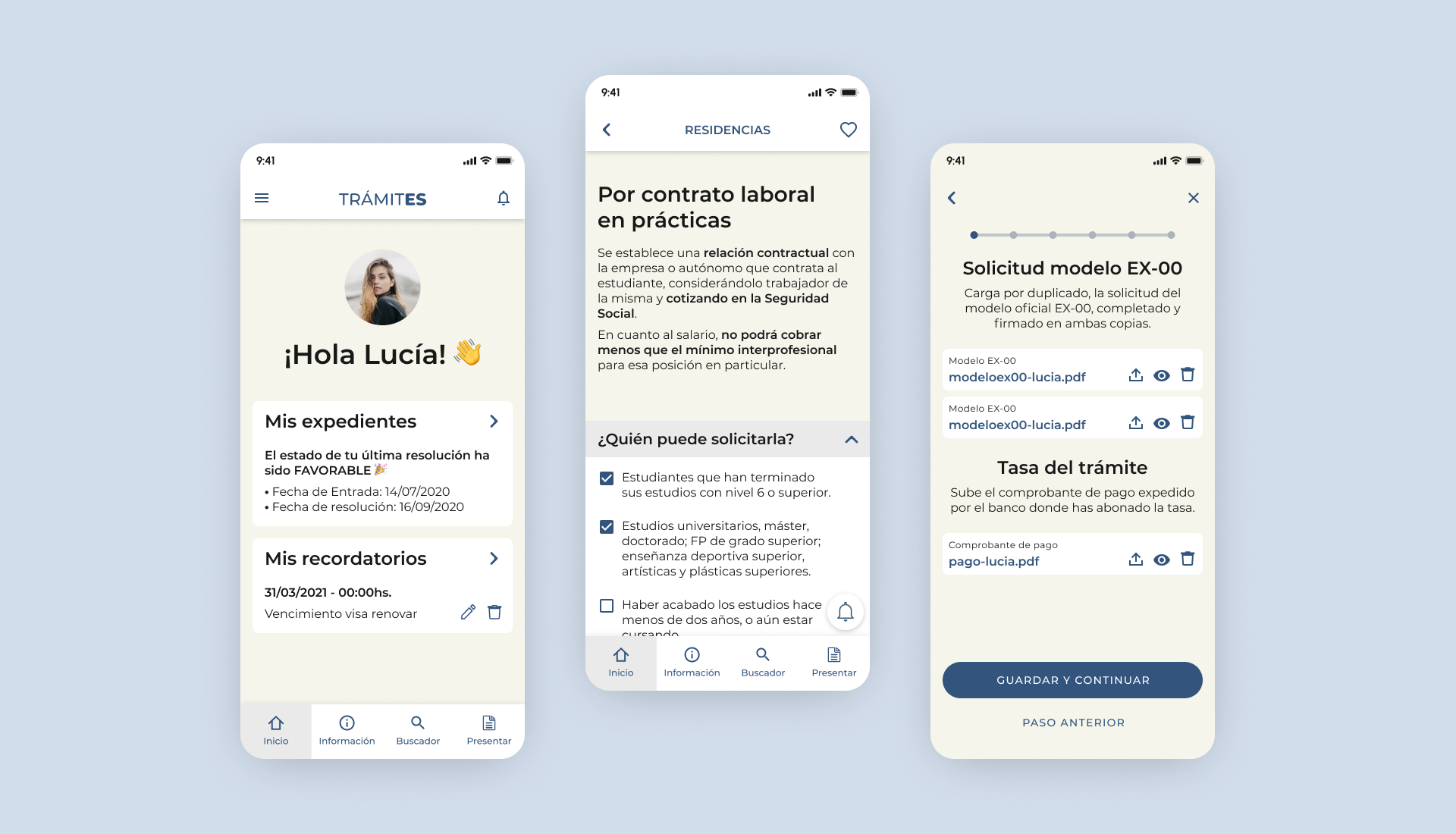
Trámites
The foreigners' new best friend
Role
UX & UI Designer
Client
UX Master’ project
at Escuela Trazos, Madrid, 2021.
Have you ever thought of living in another country? Experiencing new cultures and meeting new people sounds amazing until you face immigration formalities. Where to find reliable information? What documents are needed and where to present them?
TRÁMITES is a digital product that simplifies finding official and up-to-date information on immigration procedures and enhances document presentation for foreigners who wish to legally reside in Spain. As well as optimize and streamline the tasks of the Immigration Office workers.
Overview
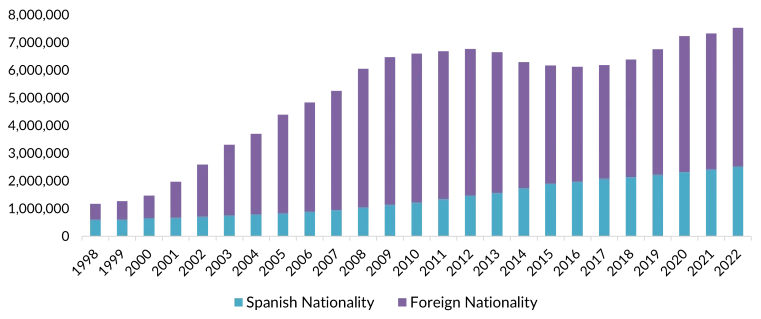
Note: “Spanish nationality” refers mainly to immigrants who became naturalized Spanish citizens after residing in Spain for a period of time, but also includes people born abroad who acquired citizenship through Spanish relatives.
Source: Spanish National Statistics Institute (INE), March 17, 2023. Article: A Pragmatic Bet: The Evolution of Spain’s Immigration System.
Defining objectives
TRÁMITES addresses the need for official, updated, clear and reliable information on immigration procedures for foreigners in Spain. The solution involves creating an official digital platform by the Spanish Government’s Immigration Office.
TRÁMITES will instill confidence and peace of mind in foreigners. It will streamline processes, saving them time and effort, while also enabling authorities to operate more efficiently.
The first iteration
From the outset, TRÁMITES was designed for foreigners without Spanish nationality, including both EU and non-EU citizens, who wish to live in Spain for work, study, or as relatives of Spaniards. Initial research and surveys revealed numerous issues and needs, resulting in the creation of various user personas. This lead to the first iteration.
Given the project’s complexity and time constraints, the MVP will focus solely on foreigners applying for a Studying Visa to legally reside in Spain.
Findings & insights
I started working on different research canvas, enabling me to understand the target users, their needs, motivations, and potential solutions. By consolidating all assumptions, I formulated hypotheses for later validation.
I executed an online survey, shared via Facebook groups of foreign students in Spain or those planning to apply for a Studying Visa, and facilitated five online meetings to have direct interaction with users to empathize and comprehend their needs.
What pain points emerged?
It is a lonely and frustrating process. You end up finding the information in parts and in different places, in order to put it all together and have it complete


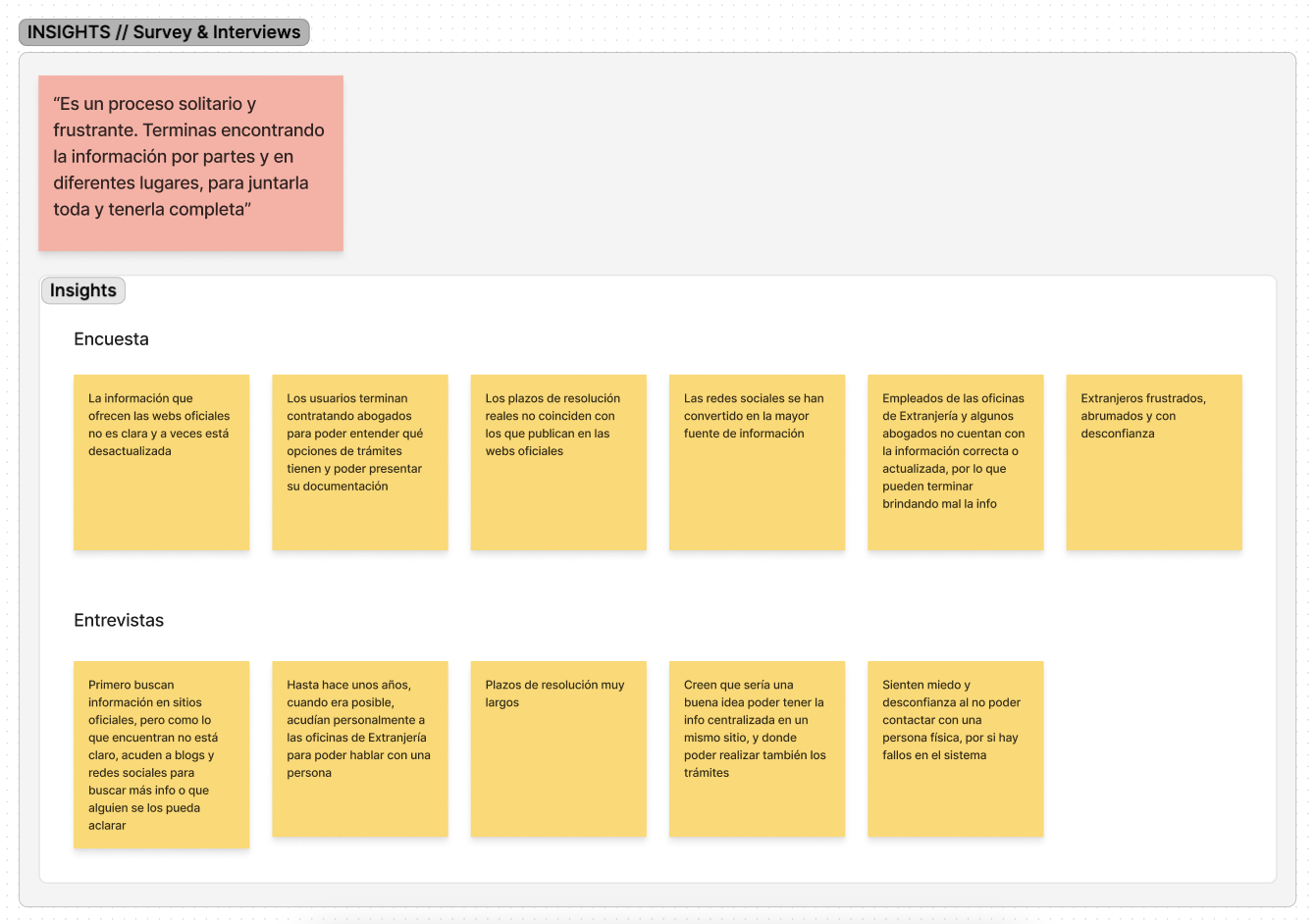
Defining the user
Who is she?
We meet Lucia García, our User Persona, who was born in Uruguay and currently resides in Madrid with a Study Visa. When she finishes her studies she wants to continue living here, but she needs to process a residence permit that allows her to continue legally in Spain in addition to being able to work.
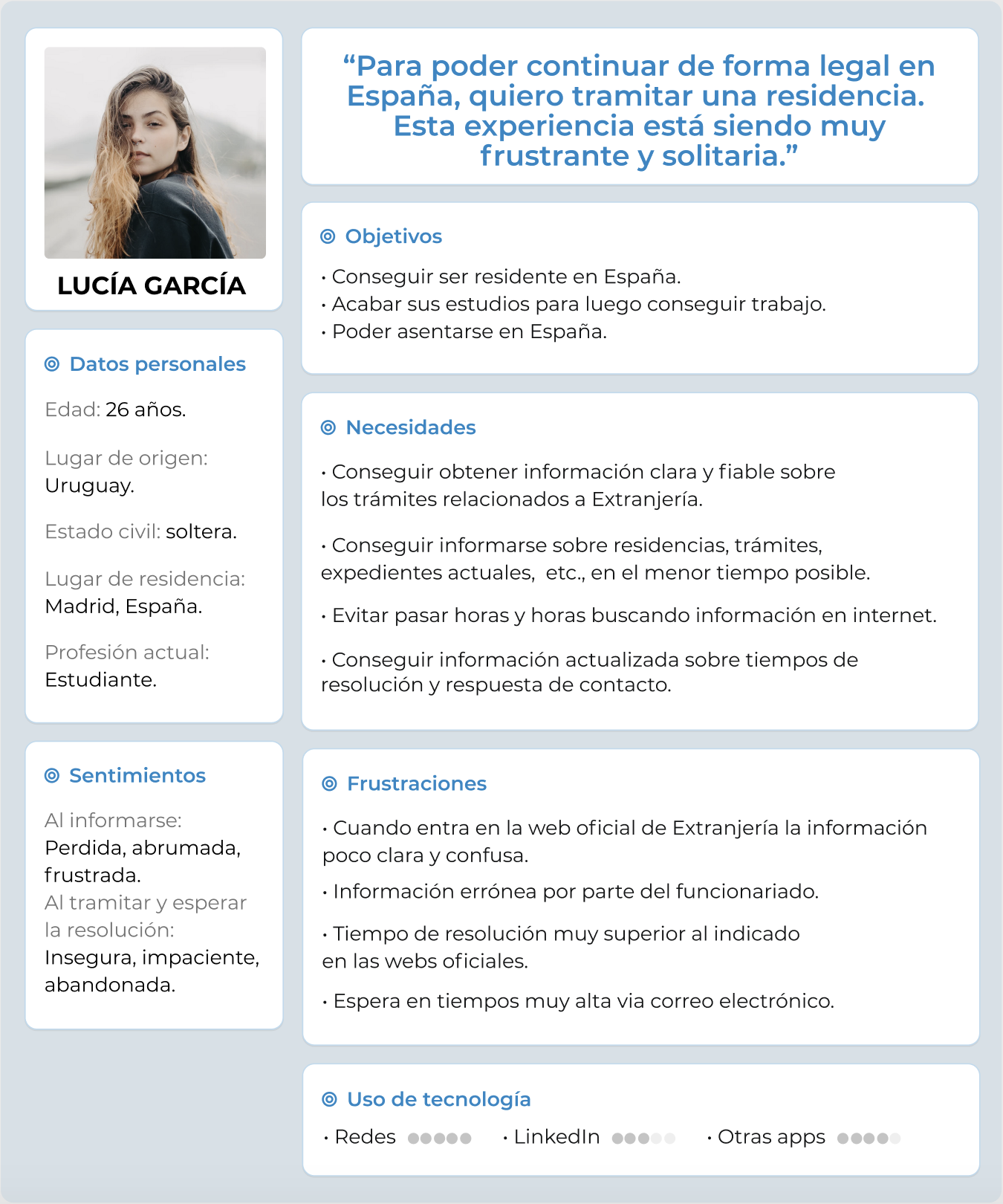
What do they need?
According to the insights detected during the research process, I worked on the Moscow Diagram, to establish the functionalities that the MVP must have in order to be launched (“Must”), along with all the ones that would add value if they are developed too (“Should”). Still, it was listed those desirable functionalities that could be developed in future stages of the digital product.
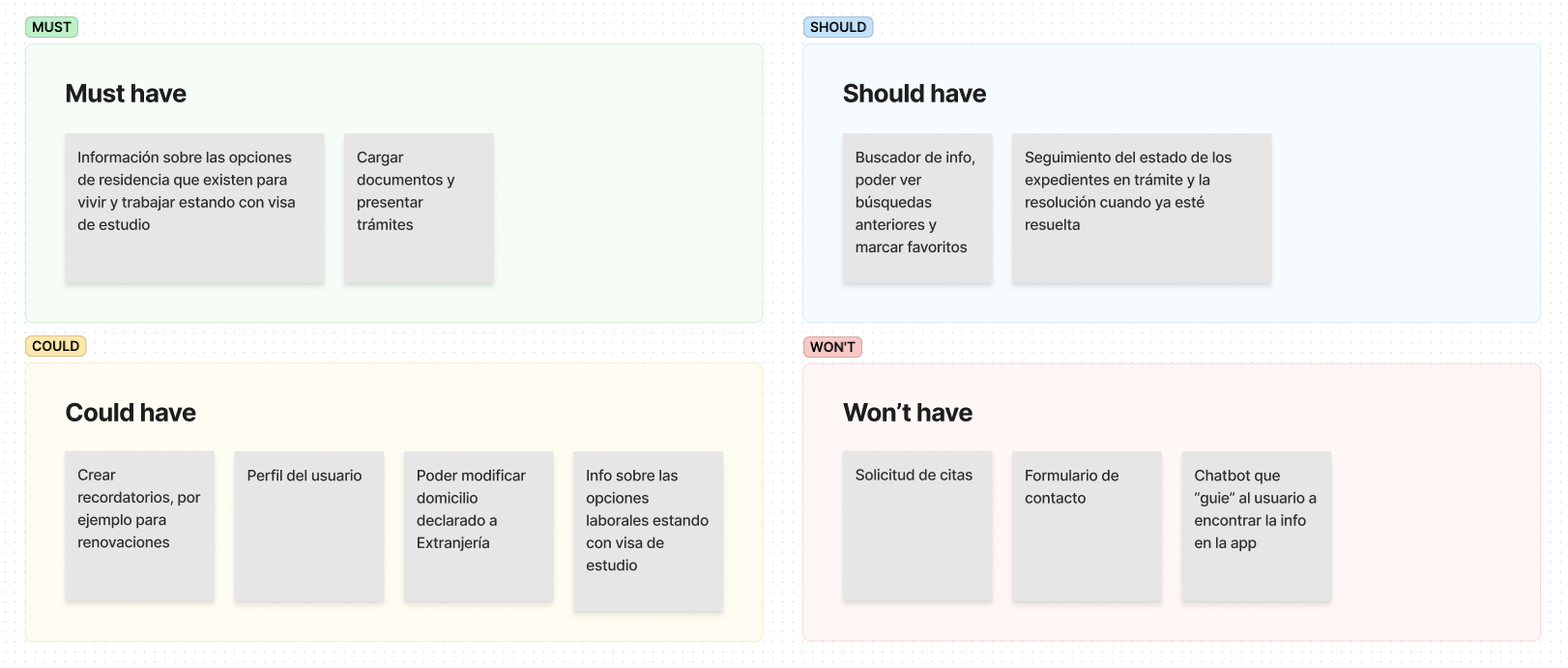
Design & ideation
Information architecture
The sitemap was thought to have a main menu and a secondary menu. Regarding navigation, it has a consistent, easy and intuitive structure.
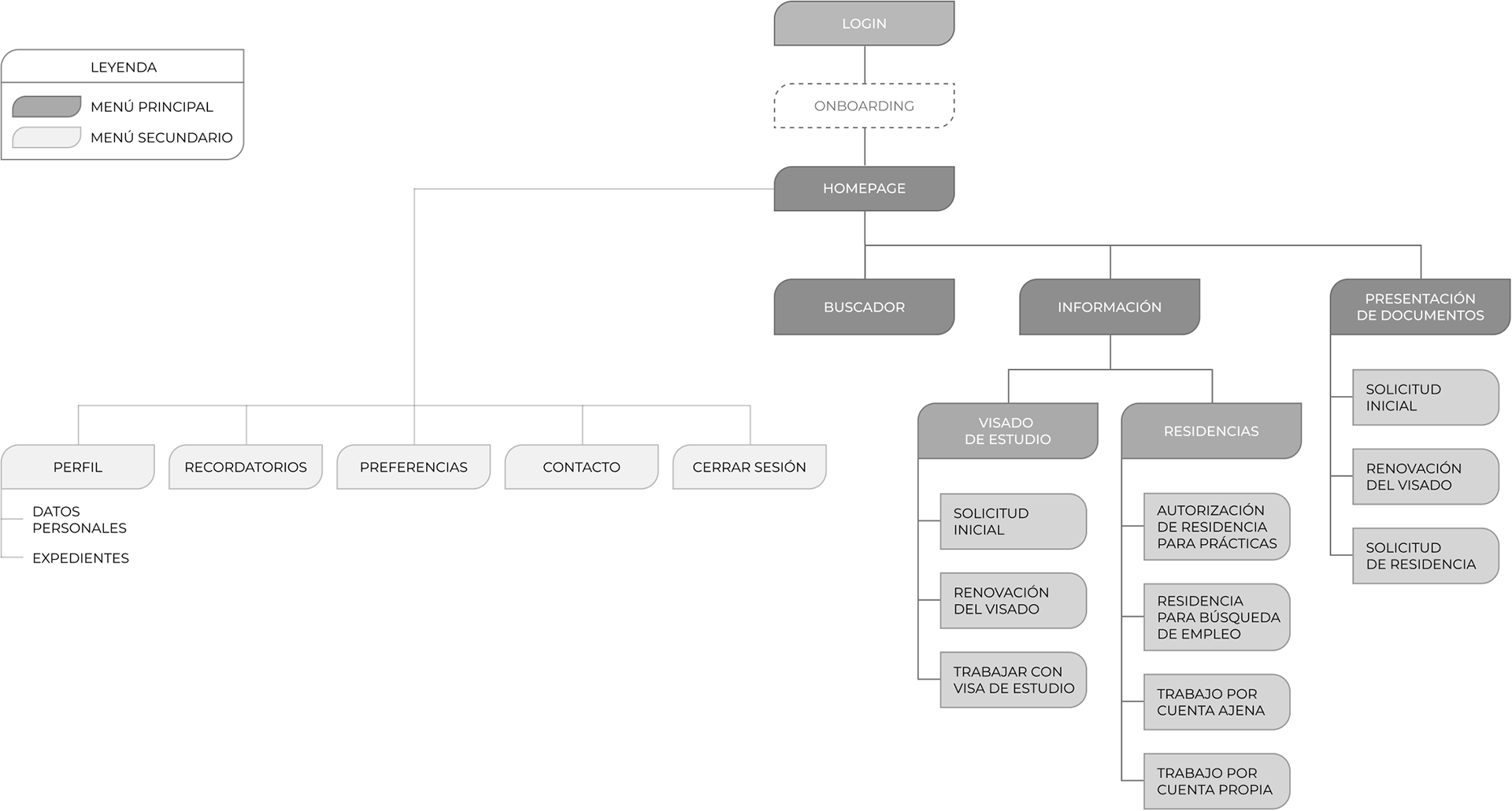
Use of Case
As TRÁMITES’ MVP is big and complex, there were three different use of case developed. They will be presented first in wireframes low-fi and then in mid-fi, and lastly, the navigable prototypes with the wireframes hi-fi.

Use of Case 1
Sign up, login & onboarding
Wireframes low-fi

Wireframes mid-fi

Use of Case 2
Find out about a residence to apply to
Wireframes low-fi

Wireframes mid-fi
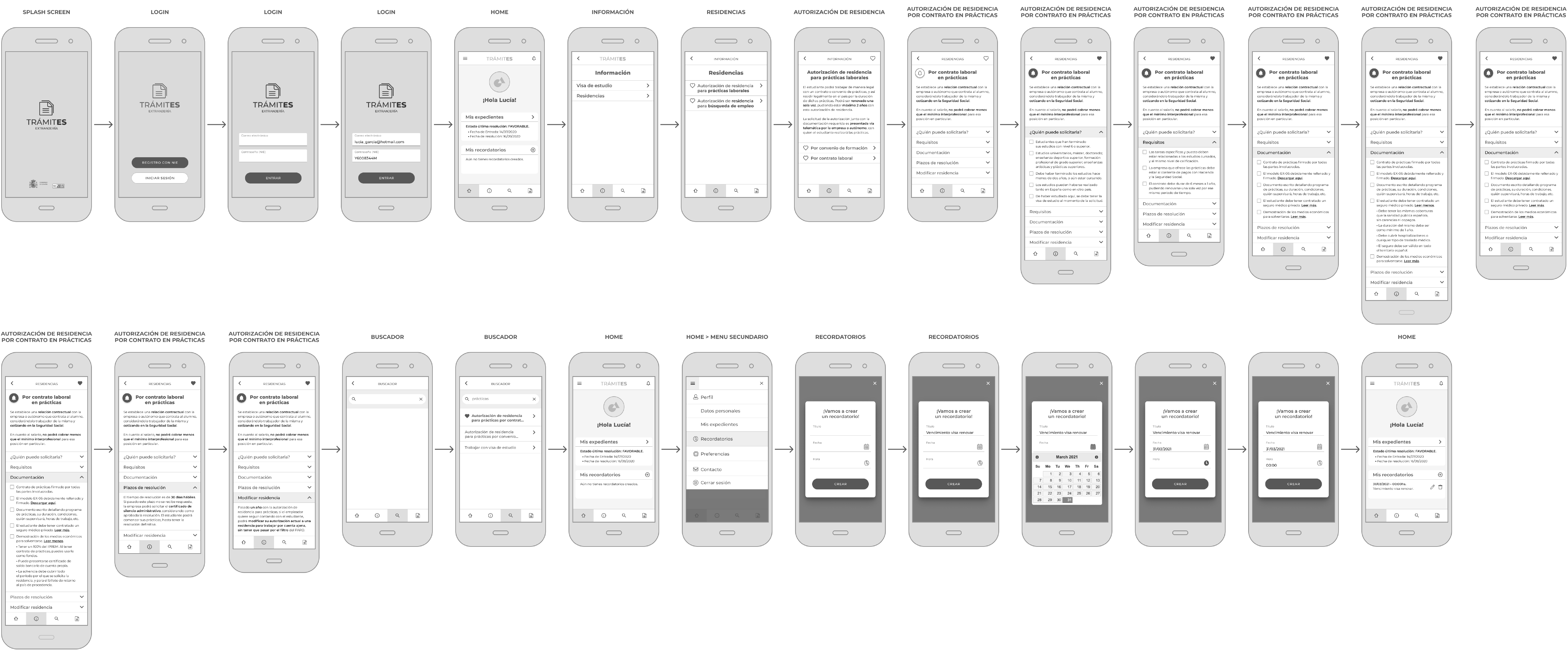
Use of Case 3
Presentation of Study Visa extension procedure
Wireframes low-fi

Wireframes mid-fi
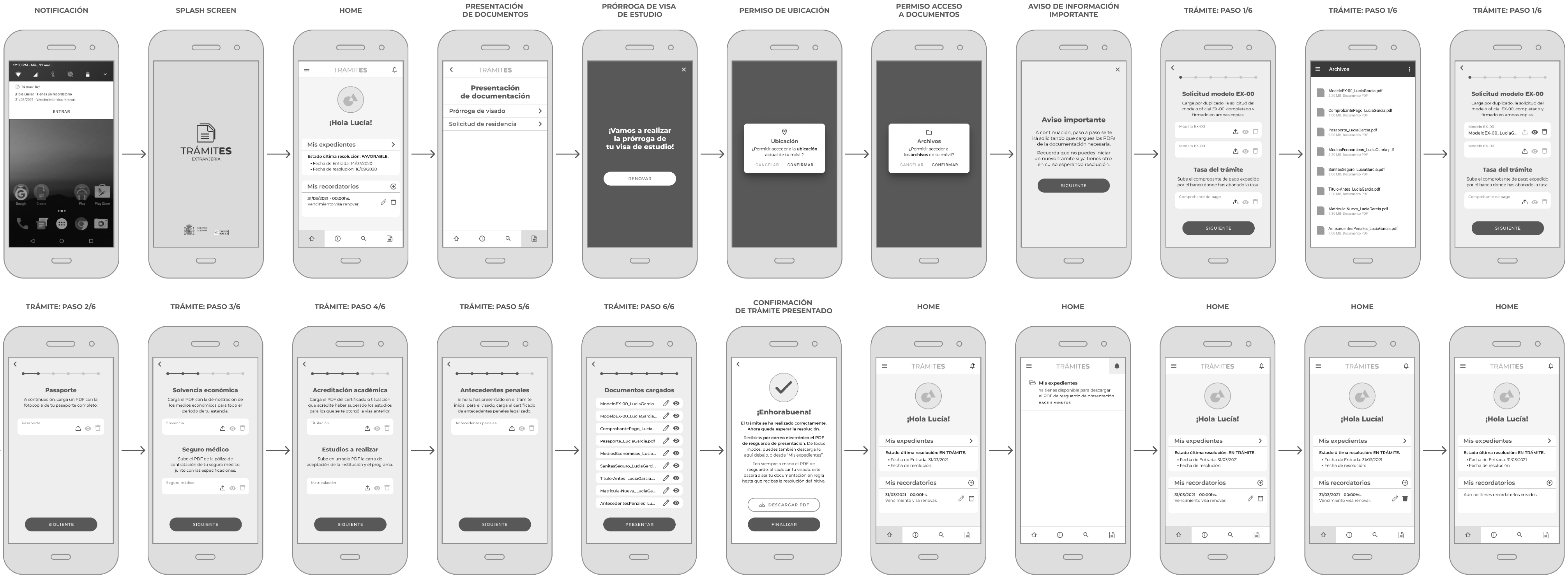
Navigable prototype of Use of Case 1 & 2
Lucía, the User Persona, enters to TRÁMITES. She goes through the onboarding, and she arrives to the Home. As she actually has a Study Visa and want to get to know about a residence to apply to, she goes to look for information. As she gets to know that she can apply 2 months before her actual Visa expires, she sets a reminder.
Navigable prototype of Use of Case 3
Two months later, as Lucía did not find a company wanting to hire her and process her residence, she decides to extend her Study Visa and continue studying. As she has TRÁMITES, she is able to do the process by herself, instead of going to an office.
In case you want to navigate the prototype by yourself, here I leave you the link to enter: TRÁMITES Prototype.
Throughout the project, all decisions have always been taken thinking in the users, managing to empathize and understand their real and more urgent needs to be attended. This is why TRAMITES’ MVP manage to convey confidence and security to these foreign people, allowing them to obtain official and reliable information, and to be able to present their documentation without having to leave their home, saving time and effort, and avoiding to put them at risk of contracting COVID for attending a public office.
It is important to make clear that, though the wireframes and prototype shows the official logo of the Government of Spain, until now, it is not a real work. It was made by myself for my UX Master at Escuela Trazos in Madrid.
